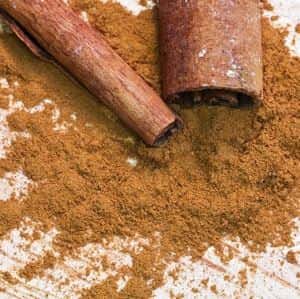
A Trip to the ER
A woman showed up in the emergency department at the Providence Hospital and Medical Center in Southfield, Michigan “complaining of abdominal pain associated with vomiting and diarrhea after she started taking cinnamon supplements for about 1 week.” The pain also radiated into her chest. Since she had stents placed in her heart eight months earlier, the ER docs were rightfully concerned.
During the medical workup they learned that she had diabetes and had started taking a cinnamon supplement to help lower her blood sugar levels. She was also taking Crestor (rosuvastatin) to treat her coronary artery disease.
Hepatitis Confirmed, but Why?
Lab work suggested she might have acute hepatitis. A CT scan, and MRI ruled out other causes for her elevated liver enzymes. The physicians concluded that “There were no other medications the patient was taking that could cause the extent of liver damage, except the cinnamon supplement.”
These alert doctors went on to determine that:
“The combination of cinnamon supplementation and a high dose statin therapy was the likely etiology [cause] of the patient’s acute hepatitis. It is possible that the high-dose Rosuvastatin (40 mg) may be an obvious culprit, but this occurs in the early course of therapy. Our patient had been taking rosuvastatin for months prior to the episode of acute hepatitis; therefore, it is unlikely the responsible agent…Several studies have reported that the coumarin in cinnamon is associated with acute liver damage. Its concomitant use in patients taking statins is a concern…Our patient had started taking cinnamon supplements along with a higher dose of rosuvastatin within a week of admission, and this combination may have caused an acute hepatitis-like syndrome with abdominal pain and significant liver enzyme elevation. This quickly resolved after the medications were held…
“Our case report shows that the combination of cinnamon and statins has the potential for significant liver damage. Therefore, patients should be warned against the use of these medications in combination.”
What Are We to Make of This Story?
Case reports are not scientific. Nevertheless, they can serve as an early warning signal that something unexpected is happening. That is especially true when it comes to drug interaction problems. There are rarely well-controlled studies of herb and spice interactions with medicines. That is why case reports are so valuable.
These vigilant physicians took a complete history and learned that their patient was taking cinnamon. They realized that a natural contaminant in this spice, coumarin, can be toxic to the liver, especially when taken with medications that can also affect the liver, like statins.
We have frequently written about the dangers of coumarin in cinnamon. Anyone who is considering taking this spice on a regular basis to lower blood sugar should 1) make sure that the supplement is a water-extracted version that should presumably have no coumarin and 2) be under careful medical supervision to check for liver toxicity. Please do not harm your liver with cinnamon. Here is more information.
Share your own cinnamon story in the comment section below and please vote on this article at the top of the page.

